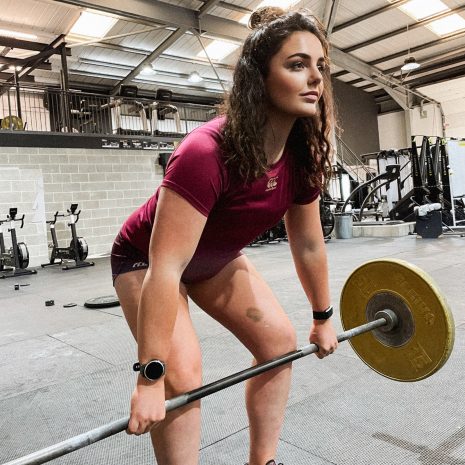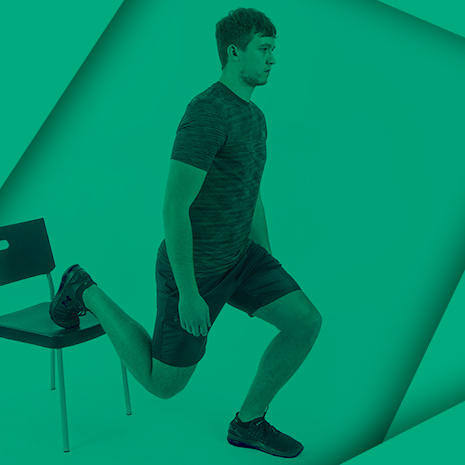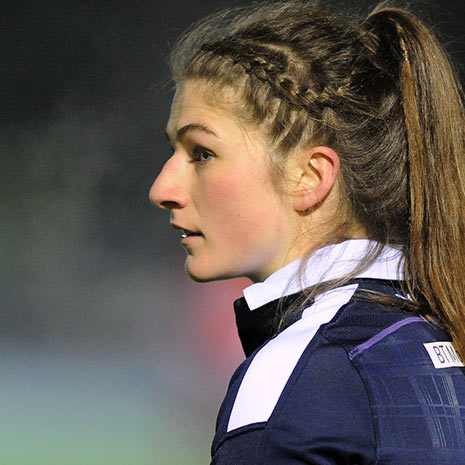We have teamed up with esteemed Chartered Physiotherapist, Neil Aitken, to give you high-quality information on the most common Rugby injuries and how to best recover from them. If there’s a particular injury you’d like us to cover with Neil’s help, get in touch with us on social media (Facebook | Twitter).
Quick links
- How do you know if you have a torn rotator cuff?
- Can you function with a torn rotator cuff?
- Can a rotator cuff tear heal without surgery?
- If it’s not torn, what other rotator cuff injuries are there?
- What is the best treatment for a rotator cuff injury?
- How long does it take to recover from rotator cuff injuries?

How do you know if you have a torn rotator cuff?
A shoulder injury will give you pain from the shoulder down towards the elbow. A rotator cuff tear will mean that it is difficult or even impossible to lift your arm away from your side. If you have a large tear you may not even have much pain, but there will be a severe weakness. With a small tear, you may have full movement but there will be pain and some weakness. To determine what type of shoulder injury you have it should be assessed by a physiotherapist.
Can you function with a torn rotator cuff?
A small rotator cuff tear can be treated conservatively and you will regain good function. This is determined by how well you stick to a rehabilitation program. A large tear will make function much more difficult as you will struggle to lift your arm away from your side. This most likely requires surgery and then rehabilitation to regain function.
Can a rotator cuff tear heal without surgery?
Yes, as mentioned above, a small tear can be treated without the need for surgery. A graded rehabilitation program will be required and should be administered by your physiotherapist.

If it’s not torn, what other rotator cuff injuries are there?
You may have shoulder impingement syndrome, a rotator cuff tendinopathy or a calcific tendonitis.
What is the best treatment for a rotator cuff injury?
A rotator cuff tear may require surgery, but most rotator cuff problems can be treated conservatively. The shoulder is the most complex joint in the body. It requires huge mobility but at the cost of stability. This is opposite to the hip joint which has less mobility but has great stability. The main things affecting the function of the shoulder joint are the following: rotator cuff strength, scapular (shoulder blade) strength and motor control, posterior capsule tightness (the back of the shoulder joint). These are the main things a physio will assess to see what you need to focus on during your rehabilitation from this type of injury.
How long does it take to recover from rotator cuff injuries?
Small rotator cuff tear: 6-12 weeks with the correct rehabilitation
Large rotator cuff tear: 6-12 months following surgery and rehabilitation
Shoulder impingement syndrome: This is a varied timeframe depending on what is causing the impingement. Recovery could be as little as 1-3 weeks or as long as 3-6 months.
Calcific tendonitis: This can resolve of its own accord or may require a steroid injection or surgery. Recovery from which is 3-6 months.
About the author
Neil Aitken is a Chartered Physiotherapist with a private clinic in Edinburgh. He has previous experience as a senior physiotherapist in the NHS and provided physio for one of the top amateur rugby teams in Scotland. He is highly evidence-based having completed a Post Grad in Musculoskeletal Physiotherapy and gaining membership to the MACP, one of the most highly respected qualifications within physiotherapy.
Website: http://www.neilaitkenphysio.co.uk/
Facebook: https://www.facebook.com/neilaitkenphysio/
Twitter: @aitkenphysio

Please note, this article is intended to serve as a guide for general information only. Injuries should be assessed by a qualified specialist such as a physiotherapist or doctor. When you sustain an injury, there are always complicating factors that may need to be assessed and addressed by a professional.




Comments